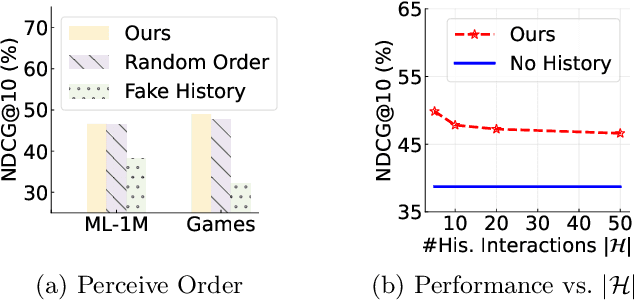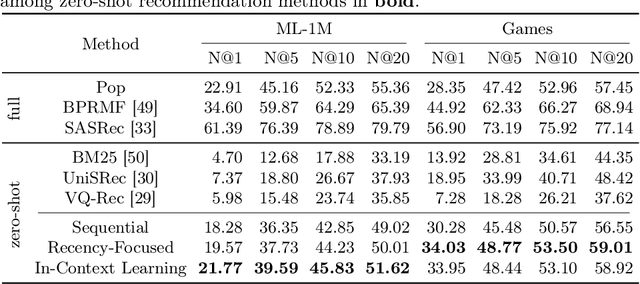Large Language Models are Zero-Shot Rankers for Recommender Systems
Paper and Code
May 15, 2023



Recently, large language models (LLMs) (e.g. GPT-4) have demonstrated impressive general-purpose task-solving abilities, including the potential to approach recommendation tasks. Along this line of research, this work aims to investigate the capacity of LLMs that act as the ranking model for recommender systems. To conduct our empirical study, we first formalize the recommendation problem as a conditional ranking task, considering sequential interaction histories as conditions and the items retrieved by the candidate generation model as candidates. We adopt a specific prompting approach to solving the ranking task by LLMs: we carefully design the prompting template by including the sequential interaction history, the candidate items, and the ranking instruction. We conduct extensive experiments on two widely-used datasets for recommender systems and derive several key findings for the use of LLMs in recommender systems. We show that LLMs have promising zero-shot ranking abilities, even competitive to or better than conventional recommendation models on candidates retrieved by multiple candidate generators. We also demonstrate that LLMs struggle to perceive the order of historical interactions and can be affected by biases like position bias, while these issues can be alleviated via specially designed prompting and bootstrapping strategies. The code to reproduce this work is available at https://github.com/RUCAIBox/LLMRank.
 Add to Chrome
Add to Chrome Add to Firefox
Add to Firefox Add to Edge
Add to Edge